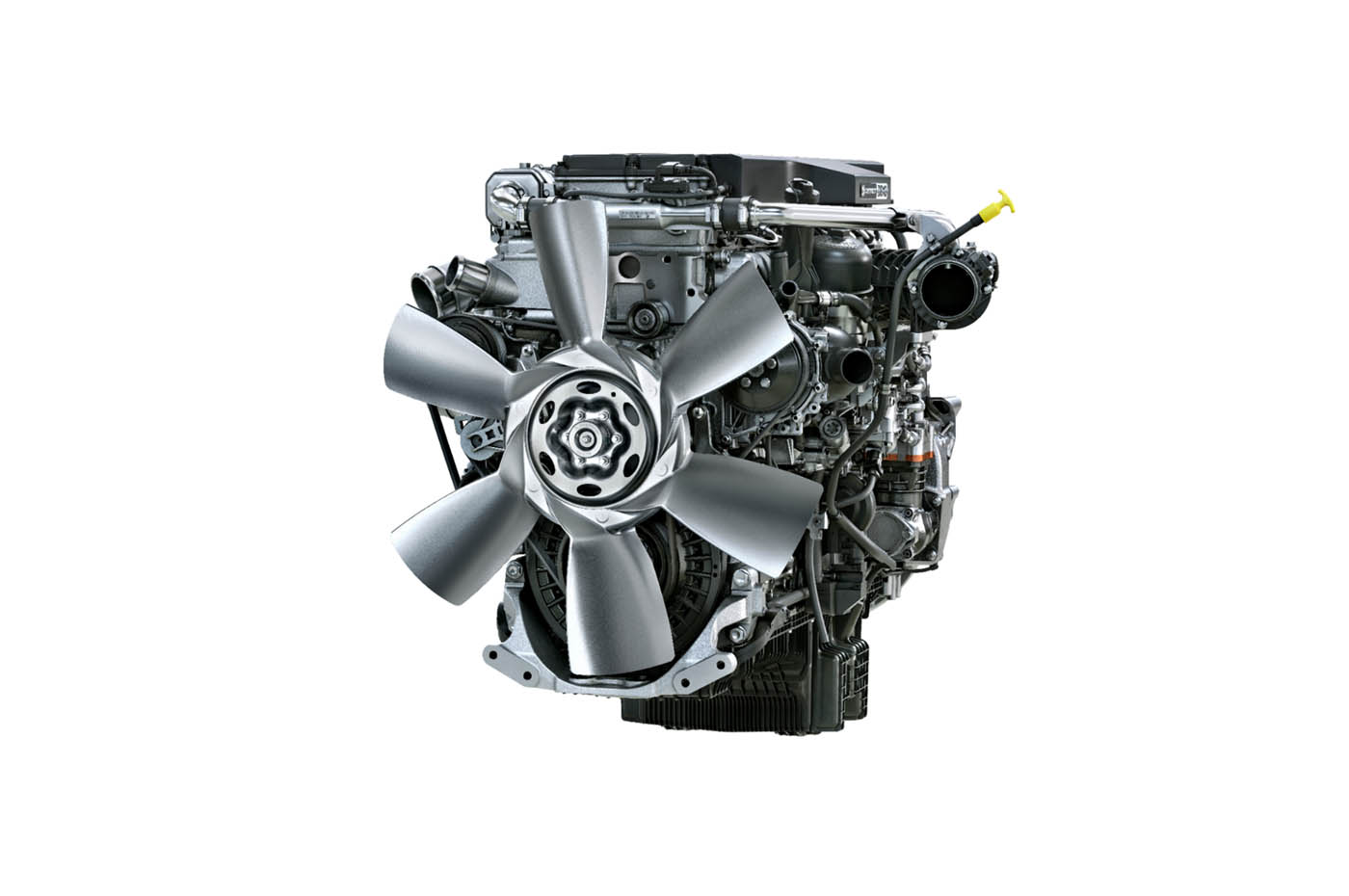The versatile Detroit DD13 engine is available with new features and power ratings, making the 13L a good choice for highway or job site. Changes to the engine are focused around efficiency, robustness, and thermal management, all of which contribute to a low total cost of ownership (TCO) and maximum uptime.

“The DD13 Gen 5 was built on the proven Heavy-Duty Engine Platform from Detroit on which our customers depend to deliver unmatched efficiency and power,”
said David Carson, senior vice president, sales and marketing for Daimler Trucks North America. “The DD13 Gen 5 builds on that legacy, while offering even more flexibility and options for specific application needs.”
The DD13 Gen 5 engine is 60 lbs. lighter than its predecessor due to its new aftertreatment system (ATS) and is available with the Freightliner Cascadia for on-highway applications and Western Star 49X trucks for vocational applications such as construction and municipal jobs. Better packaging and more frame rail space ensures clear back of frame for Truck Equipment Manufacturers (TEMs) and upfitters.
ThermoCoasting, which was initially introduced with the Detroit DD15 Gen 5 engine, prevents aftertreatment cool down during a driving regen to keep the system at its optimum temperature and significantly reduces the need for parked regenerations. This is particularly useful for stop-and-go vocational/urban applications where maximum uptime is a must. ThermoCoasting also increases ATS performance and extends Diesel Particulate Filter (DPF) cleaning and maintenance intervals, maximizing TCO.
Many of the key components in the DD13 Gen 5 engine have reduced packaging complexity and are more durable to achieve an even higher level of reliability compared to previous generations.
DD13 Gen 5: Versatile Solution for Vocational Challenges
With new vocational-focused ratings delivering up to 525 HP and 1850 lb-ft of torque, the DD13 Gen 5 is designed for a wider range of jobsite applications including mixers, municipal, vacuum trucks, and oilfield. These ratings have additional power at the upper end of the RPM band and more torque at the low end compared to the current DD13.
Additionally, the DD13 Gen 5 has been strengthened to handle higher compression ratios, while its new swirl piston design improves combustion and efficiency. A new asymmetric, fixed geometry turbocharger delivers rapid response while also using new thermal management strategies to keep heat in the aftertreatment and reduce the amount of system cool down. The new journal bearing turbocharger also features a Thermal Control Valve (TCV) that significantly boosts regen performance, allowing for more completed regens at most engine speeds and loads, especially when utilizing a PTO for vocational applications.
“Our vocational customers played a critical role in the development and design of the new DD13 Gen 5 engine,” said Mike Stricker, director of sales at Detroit. “We listened to their on-the-job needs and responded by overhauling key engine components for an immediate and long-term benefit on performance and uptime.”
Improved Fuel Efficiency, Reliability for On-Highway Performance
“When we updated the DD13 Gen 5 for on-highway applications, we applied many of the same solutions found in our recently revamped DD15 Gen 5 engine, ensuring the engine delivers on efficiency and performance,” said Carson.
The new ball bearing, fixed geometry turbocharger allows peak power and torque to be reached faster and delivers more fuel economy gains. Integrated Detroit Powertrain (IDP) ratings further slow engine RPMs while maintaining pulling power, reducing parasitic losses and wear for optimal fuel efficiency. The journal bearing turbocharger with the Thermal Control Valve (TCV) is also available without further downspeeding for on-highway customers.
Backed by Detroit Technology
The DD13 Gen 5 engine comes standard with the Detroit Connect suite of connected vehicle services, which provides fleets with remote access to vehicle diagnostic data as well as expert fuel efficiency and safety performance insights.
Through the Detroit Connect portal, fleet managers can access vehicle fault event and performance data to deepen their knowledge about overall fleet health.
Access to the information can be customized so only information relevant to the user’s role is visible.
Included in Detroit Connect suite of connected vehicle solutions is Detroit Connect Virtual Technician remote diagnostics service, which lets fleet managers know within minutes when vehicles experience fault events, the severity of the fault, and when, where, and how to best resolve the issue, providing actionable information and increased uptime.
In addition to Virtual Technician, the Detroit Connect suite of connected vehicle services includes Detroit Connect Remote Updates, which uses secure, over-the-air programming and a cellular connection to change select engine parameter settings; and Detroit Connect Analytics, which translates fuel efficiency and safety performance data into actionable insights for optimizing truck and fleet performance.
All Detroit engines are backed by the expansive Detroit service network, which has more than 700 authorized service locations nationwide.


 Copyright 2017-2025 All rights reserved.
Copyright 2017-2025 All rights reserved.